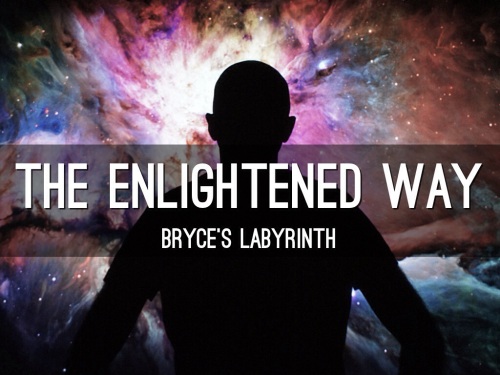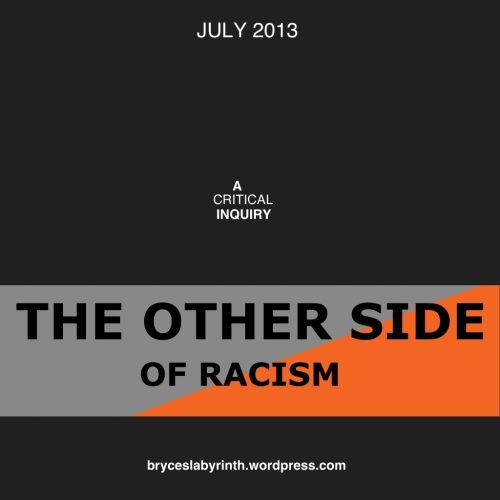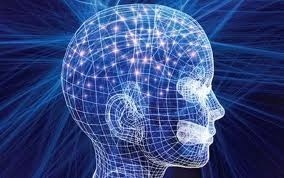I would be lying if I didn’t acknowledge my desire to be “famous” someday. By fame I am alluding to the phenomenon of being widely known and quite frankly, my field of practice is made more effective by social awareness. Hell, my company is called VB ICON, a not so subtle descriptor of what I set out to do on a daily basis: create icons and by proxy become an icon myself…
I just like every other human being suffer from cognitive biases that directly affect how I see the world and thus how I behave within it. There are dozens of cognitive biases ranging from self serving biases to curse of knowledge biases, one needs only to fire up Wikipedia to see just how messed up our psyches are.
During the last few weeks, I have been presenting my readers my views on the illusory nature of reality; I have essentially deconstructed the notion of reality as concrete and have offered a much more plastic view of “life”. I have a problem myself though, I am deluded just like the rest of us into believing the products of my confusion. For millennia, societies were governed by the laws of metaphysics sometimes called natural laws, which were by nature highly qualitative and generally disseminated through the church or some other spiritual governing body. We were the consumers of superstition and hearsay and consumed by the nature of oracular knowledge. Then came science…
Science has been the formalized study of all things. It has been man’s way of standardizing the known universe and consequently creating a standard for discovering the unknown parts of the universe. Whether that be psychological, biological, or physical (the work of physicists), the nature of all these fields of study have remained rather consistent: sober, rigorous study of content.
However, metaphysics has still persisted, mostly borne on wings of uneducated, undisciplined minds and what has been the result is a cornucopia of existential views, a world in which layers of interpretation have replaced structured dogma and the consumption of information for the purpose of validating said perceived views.
The similarity between times of olde and this current era are an interesting foray into the persisting nature of humanity: we still look to figures of authority to guide our views. However, in a world in which interpretation and variance are the norm, the amount of “authorities” on subjects is startling.
Stop Making Stupid People Famous
Our societies have always enjoyed entertainment. The Greeks had plays. The baroque periods were noted by their concerts and art. Upon these entertainment media, those talented few that commanded the attention of enthralled audiences began to exert influence over the masses.
This has been amplified to the nth degree by our technology laden culture. We have had more “influential” figures rise and fall in the last decade than probably the previous thousand years combined. The insidious part is that the influence of the individual, be it a musical artist, businessperson, or actor transcends the boundaries of their famed craft: people begin looking to them as authorities on everything.
This is fine when you have a celebrity who is somewhat informed, but it becomes laughable when a profane buffoon becomes a wildly followed “philosopher” of religion, politics, or scholastic pursuits. Their image is easily recognizable by the masses and with that social inertia they are able to affect the minds of hundreds of thousands, maybe millions, with a few strokes of the keyboard or a guest appearance.
The cause of this ties back to the second and third paragraphs of this post, metaphysics and the human mind. While we are indeed governed by rational logic, we are the inheritors of a broken world whose existence is hinged upon collective agreements. I have portrayed collective agreements as something completely imaginary and easily removed, but the contrary is quite true. Reality, or collective agreements among people, is among the most powerful, albeit vacuous, force known to us currently. Reality is based upon what is plausible and plausibility is all most of us need to make a decision. The resulting outcomes may be highly arbitrary, but to the individual thinker and up the chain to a regional or national populace, this becomes 100% concrete.
I suffer from many cognitive biases, character flaws, the most potent being a private superiority complex, egocentric biases, illusions of asymmetry biases, and a general rejection of the world as fundamentally flawed and concordantly futile. As such, I spend most of my days abrogating conventional logic citing it as the workings of delusional minds and attempting to create alternate realities that I believe are superior. This of course is a fallacious task as I am also inherently flawed and thus whatever I generate will reflect my own biases and delusions, not unlike the world I fight against.
Celebrities often times suffer from the same delusions of grandeur as I do. They are no more qualified to speak on matters of “reality”, yet the world devours their insights as fundamentally worth more, regardless of how fallacious that conclusion may be. As beings who are as incorporeal as we are flesh and bone, social inertia operates similar to the principles of gravity. The more aware people are of you or your belief systems, the more potent they become in the world.
Logical.
We are all imperfect creatures, so we end up looking to creatures that are albeit imperfect, but much more “successful” than ourselves and subsequently ascribe to them features of goodness encompassing their being, this is known as the “halo effect”. For a person like me, haughty, equally delusional, and petulant, I cannot willingly follow an imperfect person and I don’t care what they’ve accomplished. Unless that individual is personally helping me, as in giving me access to whatever empire they’ve managed to create, their existence — and transitively success — has very little to no effect on me.
The trappings of an extremely arrogant individual, but there is something to be said about the way I view things. If we were all to adopt a stripped down version of this, how many “celebrities” would be influential? Hypothetical, I know, but an interesting notion nonetheless. If we all stopped worshipping the effigies of these people who care nothing about us, who aren’t any better than us, and happen to be the benefactors of good timing and flat out luck, would we be able to better process information?
My humble petition for this world is that we stop venerating fools for their entertainment value. Although entertainment is necessary for a human to healthily flourish, you cannot give buffoons additional access to social currency. What I am asking for is effectively impossible because it would require a unitary mindset and a slew of other agreements that are just not likely to occur in our or any of our successors lifetimes. Snooki was recently paid tens of thousands of dollars to speak at Rutgers University. People vehemently swear by the unscrupulous rantings and ravings of Rihanna. They crave the “love” between Jay-Z and Beyonce or applaud the disgusting antics of the Perez Hilton’s of the world. Financiers cling desperately the words of Jon Hilsenrath and shake in prepubescent anxiety for the declaration the royal seed…
I discuss the halo effect a little more later in this post, but let me key you in on another interesting phenomenon of celebrity worship: its very existence compounds itself. A woman who would be someone attractive as a non-celebrity is adored for her beauty as a celebrity. A man who is a decent businessman, is lauded for his commercial acumen as a celebrity. And so on.
We are influenced so easily and the sad part is that most of us have the best of intentions. We are not willingly ignorant or trying to propagate social stupidity, but the composition of our cognitive faculties are complex.
One painful observation of my approach is how can one really call another stupid in a world which is imaginary anyway? If things are intrinsically illusory, infinitely plastic, and all matters of interpretation on highly qualitative subjects are equally valid, then how can I call another stupid without citing my own clear cut hypocrisy? Humans are creating the world we live in, one that is mostly devoid of universal truths, so are you, bryce, implying that there is some arbitrary hierarchy to existential contribution?
Yes, I am an elitist, consummate hypocrite, and victim of my own delusions of perfection.
This post has many holes in it. I take many liberalities and make many assumptions based on my own interpretation of life. It is this very same human flaw that has led us to praise some of the dumbest people of all time: choice. What I believe to be buffoonery of the most despicable kind happens to be the pedestal on which someone else worships. I radically dislike Obama’s administration, yet others swear by it. I believe in the diminution of race for the sake of creating real social equality, yet I am painfully aware of the struggles of being black.
All of these idiosyncrasies multiplied across an entire nation (and globe) create the uncomfortable world that we live in now. Illusory yet partially concrete, scientific yet still metaphysically oriented, with leaders that range from competent to idiotic. We thrive in the interstice that I call “somethingness”. Our world is more than nothing, yet not quite right.
So, welcome to the world. All you idea entrepreneurs, you social activists need to start understanding the nature of the world as you implement your 21st century amendments. Human nature, what I tend to discuss, is static, unchanging, spiritual; human condition is highly variable, unreal, and consequently imperfect.
The reconciliation of these two worlds is the epitome of enlightenment, but how exactly we get there is anyone’s guess.
bryce







